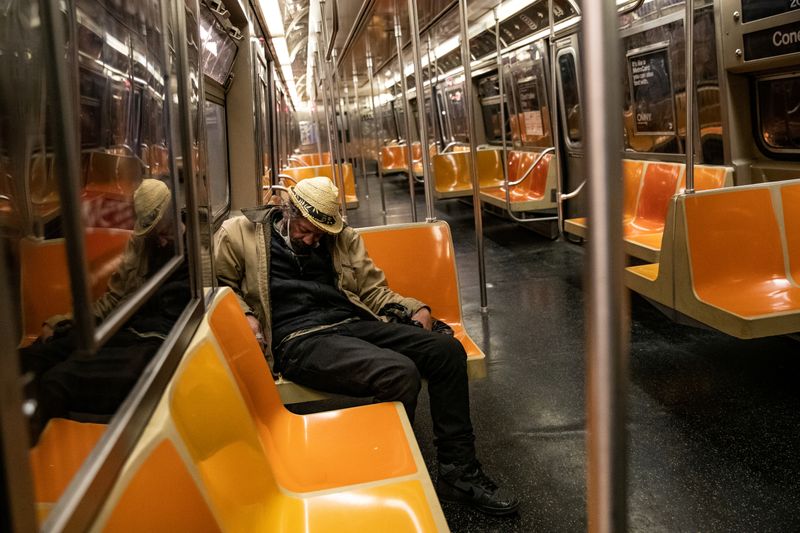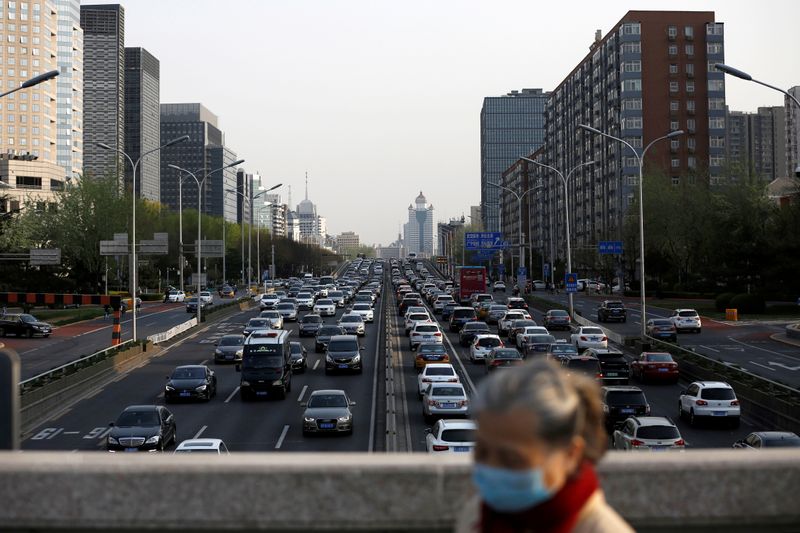By Tina Bellon
NEW YORK (Reuters) - As Americans plan for life after pandemic lockdowns, many want to avoid public transport and use a car instead, straining already underfunded transit systems and risking an increase in road congestion and pollution.
Several opinion polls show Americans plan to avoid trains and buses as stay-at-home orders ease, with some city dwellers buying a car for the first time. A potential boon to coronavirus-battered automakers, the shift poses a challenge to city planners end environmental goals.
Similar dynamics have played out in China, where transit ridership in large cities remains down about 35% two months after lockdown restrictions were lifted while car purchases increase.
Ford Motor (NYSE:F) Co Chief Operating Officer Jim Farley said the company has seen an uptick in Chinese demand for higher-priced utility vehicles fueled by upscale office workers who used to take public transport.
Volkswagen AG (OTC:VWAGY)
Sales of passenger cars jumped 12.3% between April 20 and 25, according to China's Passenger Car Association
Transit ridership has plummeted by as much as 95% in large U.S. cities during the pandemic and America's leading transit agencies forecast massive budget drops and revenue deficits well into 2022.
They call for $33 billion in federal support in addition to the $25 billion they were granted as part of a March U.S. coronavirus stimulus bill.
Transit agencies argue they are essential to a comprehensive economic recovery that avoids gridlock, but surveys show Americans plan to reduce their use of shared transportation.
In an April Ipsos poll among U.S. transit riders, 72% said they would either reduce their use of public transportation or wait until it was safe again. That compared with 68% of U.S. consumers who said they will use their car as much or more than before the pandemic.
In New York City, where some 5.5 million people commuted daily on subways and buses before the pandemic, residents are mulling their future transportation needs.
Chana and Mordechai Lightstone, a couple living in Brooklyn with their five children, never owned a car, but in early April finally made a decision to buy a Honda Odyssey minivan.
"We really prided ourselves on being subway people, but a car simply is the safest way to go outside right now," Chana Lightstone said.
Some businesses, like the New York Stock Exchange, have told employees they are not allowed to take public transit to work.
Mark Schienberg, president of the Greater New York Automobile Dealers Association, said his members in recent weeks frequently heard from customers concerned about taking transit to work.
In a survey by online vehicle sales platform TrueCar (NASDAQ:TRUE), 8% of U.S. shoppers said avoiding public transportation was their primary reason for leasing or buying a car.
But as more people switch from transit to cars, the risk of congestion increases, a team of U.S. researchers found. Modeling commutes in U.S. metropolitan areas, they found that individual commutes increase by as much as 20 minutes if one in four transit riders switches to a private car.
"If officials fail to convince the public that public transportation is safe, we could see a permanent shift away from transit," said Dan Work, a professor at Vanderbilt University's School of Engineering and one of the study's co-authors.
Trying to rebuild trust, U.S. transit officials look to Asia and Europe where cities instituted temperature checks, mandatory face coverings and in some instances try to enforce physical distancing by condoning off seats and sections on platforms.

Cleaning and disinfection procedures for everything from ticket machines to elevator buttons and handrails have been implemented by all transit agencies. In New York City, those additional cleaning measures will cost up to $500 million per year.
